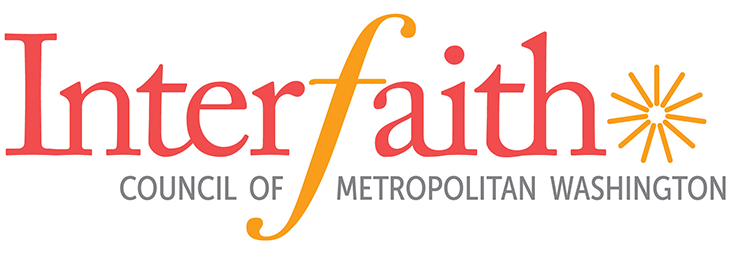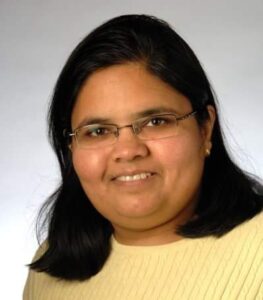By Richa Agarwala
A picture is said to be worth a thousand words. This adage comes alive with symbols that invoke high levels of emotions in people as compared to written text. Religious symbols, family pictures and national flags can inspire devotion, love, patriotism and even hate. Specifically, mention of the Swastika symbol invokes conflicting emotions of both great devotion in followers of Dharmic religions and of intense pain in Jewish communities due to religious-based hate. This article presents an example of steps taken towards successful bridge building across the difficult divide of how the Swastika symbol is perceived and used in different contexts.
Educational material on the Swastika symbol is available from the IFC [Link]. It explains the literal meaning of the Sanskrit word “Swastika” as “that which makes all well”, its long history as an auspicious symbol worldwide before Holocaust, and its continued use as a deeply religious symbol among Hindus and Buddhists. Furthermore, it clarifies that the symbol on the Nazi flag is actually not a Swastika but a Hakenkreuz (hooked cross). According to Dr. T. K. Nakagaki’s book “The Buddhist Swastika and Hitler’s Cross: Rescuing a Symbol of Peace from the Forces of Hate” the Swastika symbol was incorrectly used in place of “Hakenkreuz” during translation of Mein Kempf. In order to correct the Swastika’s misuse, a joint declaration by high-level Hindu and Jewish leaders in the DC region was issued that recognizes it as a sacred symbol to Hindus while also acknowledging the harm done to the Jewish community.
Emotions ran high during a discussion of Dr. Nakagaki’s book on the Swastika in the “All Faiths in Friendship” (AFIF) book club of which I am a member. AFIF was started in 2014 by Rev. Carol Flett in Montgomery County, Maryland. It is an interfaith book club for women that meets once a month during the academic calendar. Members propose books they would like the group to read and when the time comes, the person proposing the book typically also prepares a few questions for discussion.
It took some soul searching for me to propose Dr. Nakagaki’s book to the group, as I did not know how the Jewish members would react. At the same time, it felt like a relevant and important topic to discuss because several legislatures were proposing bans on use of the Swastika, including the State of Maryland where we live. Indeed, several members reacted strongly to the book. One Jewish member said she could not even open the book because of the Swastika on its cover. However, by the end of the discussion, she had changed her perspective about the symbol and was willing to accept the Swastika at the altar in my home or my temple, but not anywhere else. I believe that the group discussion was meaningful and productive because of the sisterhood that had been created over the years and the fact that, during the discussion, everyone practiced the principles for inter-religious dialogue. The principles that were most relevant for the Swastika discussion included:
- Entering into dialogue in order to learn and grow; not to challenge or convert the other;
- Embracing honesty and sincerity, even if it means revealing discomforts with one’s own tradition or that of the other; assuming that everyone else is being equally honest and sincere; and being willing to be self-critical;
- Defining one’s own religious experience and identity, and having it respected by others;
- Striving to experience each other’s faith “from within” and be prepared to view oneself differently as a result of “outside” perspectives;
- Being responsible for preventing the perpetuation of misinformation about each other’s faith traditions after we have heard and learned otherwise.
This positive experience with inter-religious dialogue gives me hope that similar bridges can be built on other issues that divide us. I challenge all of us to abide by the practices we used to help bring us closer to one another in this fragmented world.
Richa Agarwala is the Outreach coordinator for Chinmaya Mission Washington Regional Center (CMWRC) and a Hindu representative on various forums. She works with Montgomery county organizations, such as, Hindu representative on Faith Community Working Group’s subcommittee on Education for the Montgomery County Public Schools (MCPS), CMWRC representative for Montgomery County’s Faith Alliance on Climate Solutions, co-organizer from CMWRC for the Montgomery county Unity Walk, and a facilitator for the Montgomery county’s Multicultural Dialogues on Bias. She also works with the Hindu American Foundation as a liaison and a speaker for presenting Hinduism in schools, colleges, interfaith groups, or any community group interested in learning about Hinduism. These presentations are by visiting places in the Washington DC metro area requesting a speaker or by hosting programs at Chinmaya Mission, such as, “Know your neighbor” program organized by the IFC. Richa participates in “All Faiths in Friendship” interfaith book club for women, bringing a different perspective to discussions having grown up in India. Professionally, Richa has a doctorate in Computer Science from Iowa State University and works as a scientist in the field of Bioinformatics. Personally, she has two sons who have both graduated from MCPS and University of Maryland College Park.

